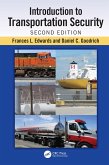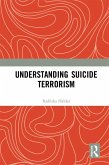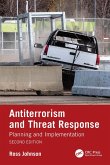Since September 11th, America's decision makers have examined issues related to training as it pertains to emergency responders to a suicide bombing incident, relationships between communities with police, and homeland security initiatives with local law enforcement departments.
Current training practices and training focuses on the influence that emergency responder organizational structures and administrative factors have on terrorism response preparedness among local agencies, but few studies have systematically measured these impacts or share information on lessons learned.
Recent research indicated that training could be enhanced if future training promotes a better understanding of case studies of similar suicide bombing incidents and structural characteristics of local active terrorist groups by examining all ideologically motivated crimes, regardless of whether they are also defined as a terrorist.
The conclusion discusses how training could be enhanced by strategically integrating the existing knowledge base across all levels within emergency responders, as well as detailed knowledge of the nature and extent of the threat posed by suicide bombing extremists.
Current training practices and training focuses on the influence that emergency responder organizational structures and administrative factors have on terrorism response preparedness among local agencies, but few studies have systematically measured these impacts or share information on lessons learned.
Recent research indicated that training could be enhanced if future training promotes a better understanding of case studies of similar suicide bombing incidents and structural characteristics of local active terrorist groups by examining all ideologically motivated crimes, regardless of whether they are also defined as a terrorist.
The conclusion discusses how training could be enhanced by strategically integrating the existing knowledge base across all levels within emergency responders, as well as detailed knowledge of the nature and extent of the threat posed by suicide bombing extremists.
Dieser Download kann aus rechtlichen Gründen nur mit Rechnungsadresse in A, D ausgeliefert werden.









